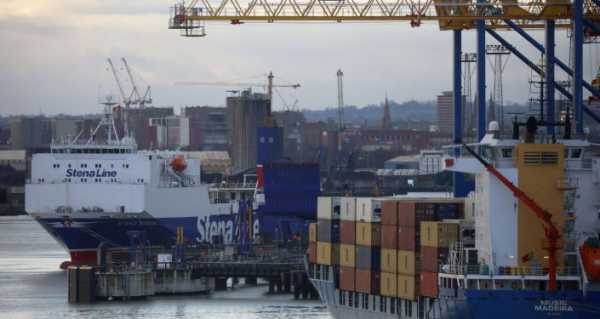
Tensions escalated between the EU and the UK after the former briefly activated and the latter threatened to use Article 16 of the Northern Ireland Protocol, which allows the parties to the Brexit agreements to act unilaterally to avoid setting up a hard border on the island.
The government of the Republic of Ireland (RI) has indicated that it does not plan to scrap the post-Brexit Protocol regulating the transport of goods from the rest of the UK to the island of Ireland, thus ignoring calls from the Democratic Unionist Party (DUP) and its leader, Stormont First Minister Arlene Foster.
Coveney said RI ministers were ready to be flexible in resolving the existing issues with the protocol but were sceptical that it would undergo any drastic changes.
The EU and the UK have the right to amend the protocol, should the necessity arise and the sides agree on the amendments, but there is little interest in altering the document in a substantial manner, Nikos Skoutaris, an expert in conflict resolution and European Union law at the University of East Anglia, indicates. It is more likely that Brussels will simply focus on addressing “practical problems” that have arisen with the protocol’s implementation, such as the disruption of the flow of goods from Great Britain to Northern Ireland, the expert adds.
In fact, instead of renegotiating the protocol’s provisions, the EU and the UK are likely to address issues regarding its application, for example, what checks and controls are utilised when it comes to reviewing goods coming to Northern Ireland from GB, Skoutaris points out. That is probably the reason why the UK government asked for the light-touch regulation grace period to be extended – to give time to find “practical solutions” to apply the protocol without any issues, the expert believes.

Britain’s Chancellor of the Duchy of Lancaster Michael Gove speaks at the House of Commons in London, Britain, October 19, 2020. UK Parliament/Jessica Taylor/Handout via REUTERS
Cabinet Office Minister Michael Gove, who is currently negotiating with an EU representative on the issue of the protocol, recently announced a request for the grace period to be extended. This came as British Prime Minister Boris Johnson was threatening to implement Article 16 of the agreement, allowing London to take unilateral steps to prevent the introduction of a hard border on the island of Ireland. The threat could become a reality, Skoutaris says, recalling that in December, the UK was ready to pass legislation that would violate the existing Brexit arrangements with the EU to achieve its goals.
Northern Ireland Protocol ‘Impossible’ to Replace
The Republic of Ireland government’s response to calls for scrapping the protocol – which had prompted checks of all goods going from Great Britain to the island and, as a result, led to shortages of supplies in local NI supermarkets – did not go down well with the DUP leader and Northern Ireland’s First Minister Arlene Foster. She slammed the RI’s foreign minister for being “completely tone-deaf to the concerns of unionism”, calling for renegotiating or scrapping the post-Brexit Protocol.
It is unlikely that the protocol will be renegotiated significantly, let alone scrapped, conflict resolution expert Skoutaris believes, adding that Foster has simply misunderstood what the document means for the UK and the EU. The protocol allowed the two to find a way out of the complicated issue created by the need to avoid a hard border on Ireland, while allowing the UK out of the EU and the customs union – an issue that London and Brussels worked on for four years, Skoutaris stresses.
Sourse: sputniknews.com






